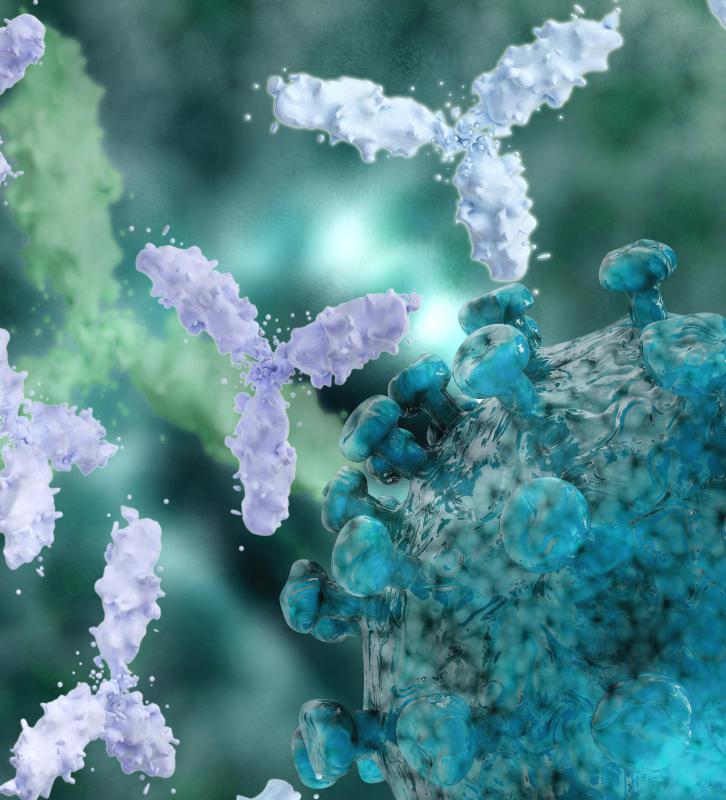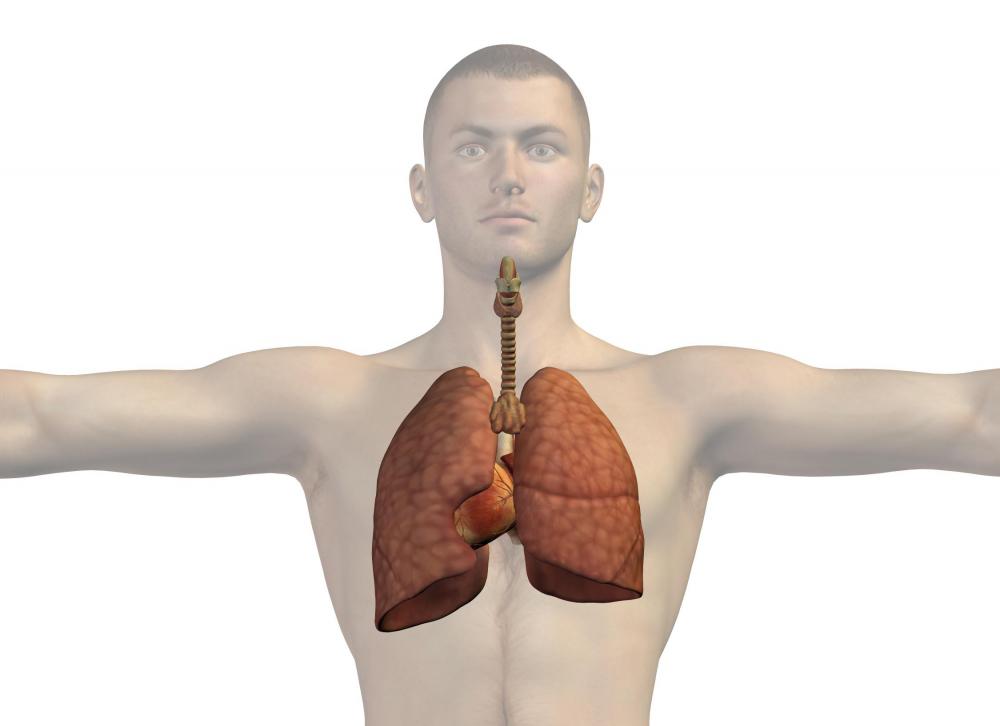At TheHealthBoard, we're committed to delivering accurate, trustworthy information. Our expert-authored content is rigorously fact-checked and sourced from credible authorities. Discover how we uphold the highest standards in providing you with reliable knowledge.
What is an IgE Antibody?
An IgE antibody is a type of protein that is produced by the immune system of the body. The role of the immune system is to protect the body from harmful foreign substances. Specifically, IgE antibodies are involved in allergic reactions. They respond to foreign substances by causing the release of histamines into the body, which in turn causes the allergic reaction.
All antibodies are named for the class of protein to which they belong. The IgE antibody is a type of immunoglobulin, as are all antibodies produced in the body. Immunoglobulins have a specific structure that allows them to bind with specific foreign molecules in the body, called antigens or allergens if they cause an allergic reaction. Each antibody is only produced in response to the presence of a very specific antigen or allergen.

Antibodies come in different types, called classes or isotopes. The immune system produces five types of innunoglobulins (Ig), or antibodies, in an effort to protect the body. These antibodies are IgA, IgD, IgE, IgG and IgM. The Ig stands for immunoglobulin and the letter following it is used to represent the different functions of that specific isotype in the body. The IgE antibody, as well as IgA and IgG, exclusively function in the immune system and have distinct and specific jobs to protect the body against damaging foreign cells.

IgE antibodies are the primary antibodies responsible for allergic reactions. Each allergic substance, or allergen, causes the production of a specific IgE antibody. Depending on the individual, different substances that cause allergic reactions can, and will, be different. When the IgE antibody encounters the allergen, it begins the process that results in an allergic reaction.

During an allergic reaction, the allergen stimulates the production and release of IgE antibodies. When the antibodies bind to the allergen, they signal the mast cells in the body to release histamine into the surrounding tissues. Histamine is what causes the common symptoms of an allergic reaction. When released in the body, sneezing, runny nose, itching eyes, rashes and hives are just a few of the symptoms of an allergic reaction.

There are many substances known to be allergens. Also, different individuals can react very differently to known allergens. Determining the potential for an allergic reaction is possible through radioallergosorbent testing (RAST). RAST is a blood test that measures IgE antibody levels in the body and whether there is any increase in response to an allergen being introduced. RAST studies of individual reactions to allergens are proven tests for determining effective treatments for allergic reactions.
AS FEATURED ON:
AS FEATURED ON:


















Discussion Comments
We use antibodies in the lab to detect certain molecules in the blood. How this works is that we attach a fluorescent molecule onto the antibody, release it into the blood and wait for it to attach to something. Right now, we are using actin antibodies (because actin protein is found in cells), but we also use ige and igg antibody from time to time. Antibodies have been very important for our research, it wouldn't be possible without them.
@burcidi-- Did you travel abroad? I know some of my foreign friends had the same experience. If you've been traveling, your body might have encountered new and foreign pollen and developed IgE antibodies as a result. I went to India and was sick from the food the first couple of weeks because I encountered new bacteria there. But Indians who ate the food from birth were completely immune to it. It partly has to do with immunity I think.
Now I know why I take antihistamine allergy medicine! It makes sense. But I wonder, how do allergies suddenly develop? I had no allergies until two years ago when I started having an allergic reaction to pollen. Did my body suddenly start producing ige antibodies?
Post your comments